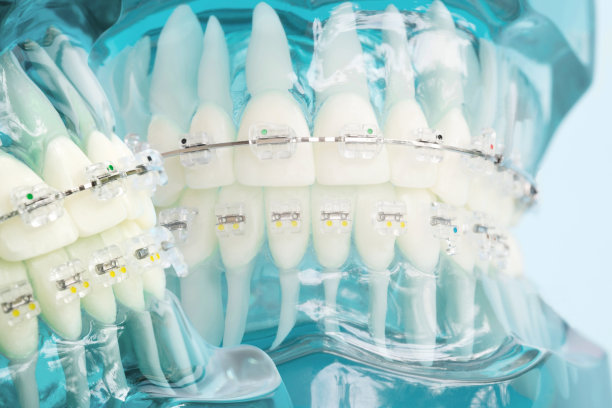Summary: Root canal treatment is a common dental procedure performed to save a tooth that is severely decayed or infected. Understanding essential precautions can significantly increase the chances of a successful outcome and help maintain optimal dental health. This article delves into four key areas: the importance of selecting a skilled endodontist, the role of thorough examinations before treatment, proper aftercare following the procedure, and the impact of good oral hygiene practices. Each segment offers vital insights for patients to consider, ensuring they are well-prepared for the treatment and aware of how to maintain their dental well-being post-treatment.
1. Choosing a Skilled Endodontist

One of the foremost considerations before undergoing a root canal is selecting a qualified and experienced endodontist. The success of the procedure relies heavily on the skill level of the practitioner. An endodontist specializes in performing root canals and has completed additional training beyond dental school, making them well-equipped to handle any complications that may arise.
Researching potential endodontists in your area is an essential step. Look for online reviews, testimonials, and any professional accolades they may have received. A good reputation in the community often signals that an endodontist is trustworthy and competent.
Moreover, don’t hesitate to ask friends and family for recommendations. Personal referrals can be invaluable, as they often provide insights into the endodontists demeanor, office environment, and overall treatment efficiency.
2. Conducting Comprehensive Examination Before Treatment
Before a root canal procedure is initiated, a thorough examination of the affected tooth is crucial. This process typically includes digital X-rays and a complete oral evaluation to assess the extent of decay or infection. Such an examination helps determine whether a root canal is indeed the best solution for Save the tooth.
In addition to identifying the issues with the tooth, the examination allows the dentist to develop a detailed treatment plan. This plan will outline the steps to be taken during the procedure, as well as any potential challenges that may arise. A well-structured treatment strategy is essential for achieving successful results.
Being candid about your medical history, including any allergies or previous dental procedures, can also aid in the examination. Transparency allows the endodontist to make informed decisions tailored to your specific needs, ensuring a safer and more effective treatment process.
3. Ensuring Proper Aftercare Following the Procedure
The aftercare process is just as important as the procedure itself. Following a root canal, patients often experience some discomfort or sensitivity, which is typically manageable with over-the-counter pain relievers. It’s crucial to follow the dentists aftercare instructions regarding medication and dietary restrictions.
Patients should avoid hard or chewy foods for at least a few days post-treatment to prevent any irritation to the affected area. Soft foods can help ease discomfort and support the healing process. Additionally, avoiding using that side of the mouth for chewing will minimize any excess pressure on the treated tooth.
Scheduling a follow-up appointment is another essential aspect of care after a root canal. A follow-up allows the endodontist to assess the healing process and determine if further treatment or adjustments are necessary. This step helps ensure the tooth is healing correctly and no complications have arisen.
4. Maintaining Good Oral Hygiene Practices
Good oral hygiene practices play a pivotal role in the long-term success of root canal treatments. After the procedure, patients must maintain a rigorous brushing and flossing routine to keep the area around the treated tooth free from bacteria and plaque buildup. This diligent practice can safeguard against future infections.
It is also advisable to use an antibacterial mouthwash to complement regular brushing. Mouthwash can eliminate leftover food particles and combat bacteria that lead to oral complications. Regular dental cleanings—at least twice a year—can further promote dental health and monitor the condition of the root canal.
Lastly, staying hydrated and avoiding tobacco products can greatly enhance oral health. Dehydration can impede healing, while tobacco can increase the risk of infection and complications. Making healthier lifestyle choices supports the success of dental treatments and general well-being.
Summary:
In this article, we explored essential precautions critical for a successful root canal treatment and overall optimal dental health. Choosing a skilled endodontist, conducting thorough examinations, ensuring proper aftercare, and maintaining good oral hygiene are key components that greatly enhance the likelihood of a favorable treatment outcome.
By adhering to these principles, patients can not only improve their chances of a successful root canal but also foster better long-term dental health. Knowledge and preparedness are vital for navigating your dental journey effectively.
This article is compiled by Vickong Dental and the content is for reference only
Vickong Dental
Vickong Dental is a large medical group established in Hong Kong in 2008 by professors from well-known medical universities in Guangdong and Hong Kong, as well as medical doctors from key national '985' universities (including Master's supervisors and senior professors). The chain of branches brings together expert dentists with PhDs and Master's degrees from Hong Kong and Mainland China, committed to providing high-quality dental treatment.
"Vickong Dental Practices the University Motto of 'Healing and Serving Society,' with a Stable Operation for Sixteen Years. It Has Been honored with Hong Kong Enterprise Leaders's Choice,' and is a Global Trusted Implant Center for the Nobel Implant System. Recommended by Hong Kong Metro Broadcast and Guangdong Television, it Serves Customers from Over Thirty Countries and Regions, Gaining the Trust and Favor of Citizens from the Guangdong-Hong Kong-Macau Greater Bay Area and Surrounding Cities.

Thousands of customers' unanimous praise
The most recognized and highly recommended dental service by customers in the Guangdong-Hong Kong-Macau Greater Bay Area
We Ensure You Receive Detailed Care and Attention Here
Hong Kong standards, Shenzhen prices, Your Trusted English-speaking dentists

Vickong Dental Medical-Grade Instrument Disinfection Process
Vickong Dental Medical-Grade Instrument Disinfection Process

Vickong Dental Chain: A Warm and Comfortable Environment for Treatment






Appointment Hours

Q&A
Why choose Vickong Dental?
Vickong Dental practices the university motto 「Medicine to Benefit Society」, with each branch bringing together highly qualified dentists with doctoral and master’s degrees from Hong Kong and the Mainland, and has maintained seventeen years of steady operation。Recipient of 「2024 Hong Kong Enterprise Leaders Brand」, 「2025 Hong Kong Enterprise Leaders Brand」, a Nobel Biocare Global Trusted Implant Center, and a brand recommended by Metro Radio Hong Kong and Guangdong TV。
To date, we have served customers from more than thirty countries and regions,earning exceptionally high word-of-mouth recognition and trusted recommendations from residents across the Guangdong-Hong Kong-Macao Greater Bay Area and surrounding cities
We have eight major branches in Zhuhai、Shenzhen,and a consultation and service assurance center in Hong Kong,so you can book a free consultation at any time for any questions,which is very reassuring.
If I do not accept the quotation after the CT scan, will I be charged??
No! As long as the actual treatment has not started, you will not be charged any fees.
Will there be any additional charges during the treatment process?
No, there won’t be any additional charges. Before treatment begins, we will clearly explain the treatment plan and its corresponding fees. Only after the patient agrees and signs the consent form will we proceed with the dental service.
Can I pay in Hong Kong dollars?
Yes. Vickong Dental accepts payment in Hong Kong dollars. The amount will be converted based on the exchange rate of the day, and the applicable rate will be clearly communicated to you in advance.
Can I reschedule my appointment at any time?
Yes. Please contact us via **WeChat** or **WhatsApp** as early as possible, providing your original appointment time and details, along with your preferred new date and time slot for rescheduling.













